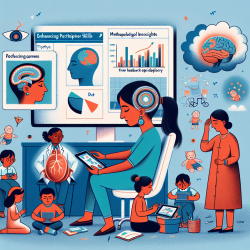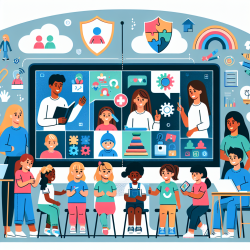The increasing demand for mental health services among youth has highlighted significant gaps in access and delivery. Schools are a primary setting where students can receive mental health support, yet many school mental health professionals (SMHPs) lack the training and resources necessary to implement evidence-based practices (EBPs) effectively. A recent study titled Developing a statewide network of coaches to support youth access to evidence-based practices explores an innovative approach to address this issue by developing a network of trained coaches.
The Power of Coaching in Schools
The research highlights coaching as a vital strategy for supporting SMHPs in implementing EBPs. Unlike traditional training methods that often lack follow-up support, coaching provides in vivo modeling and guidance during service delivery. This hands-on approach not only enhances the fidelity of EBP implementation but also ensures that SMHPs can apply new skills directly within their work environment.
The TRAILS Program: Transforming Research into Action
The Transforming Research into Action to Improve the Lives of Students (TRAILS) program serves as a model for developing a robust coaching network. The program focuses on training community clinicians in cognitive behavioral therapy (CBT) and positioning them as coaches for SMHPs. By doing so, TRAILS aims to increase access to EBPs for youth through direct care provision and by supporting EBP implementation in schools.
Steps to Building a Coaching Network
The development of the coaching network involved several key stages:
- Recruitment: Identifying and engaging potential coaches from various regions across Michigan.
- Clinical Training: Providing day-long workshops focused on core CBT components such as psychoeducation, cognitive restructuring, and behavioral activation.
- Consultation: Offering 12 weeks of personalized consultation with experienced clinicians to reinforce CBT skills.
- Evaluation: Assessing the proficiency of coaches through standardized measures and live session observations.
- Coach Protocol Training: Equipping coaches with tools and techniques to effectively support SMHPs in implementing CBT.
The Impact of Coaching on Youth Mental Health
The implementation of the coaching network has shown promising results in improving youth mental health outcomes. Coaches reported significant improvements in their knowledge and use of CBT strategies, leading to better clinical outcomes for students. Notably, students receiving CBT from trained coaches exhibited significant reductions in symptoms of anxiety and depression.
Sustaining the Coaching Model
Sustaining this model requires ongoing support and adaptation. The TRAILS program has incorporated virtual coaching options to expand reach and overcome geographic barriers. Additionally, continuous evaluation and feedback mechanisms ensure that the program remains responsive to the needs of both coaches and SMHPs.
Encouraging Further Research and Implementation
This study underscores the importance of bridging the gap between research and practice in mental health services. Practitioners are encouraged to explore similar models within their regions, adapting strategies to fit local contexts and needs. By investing in training and support systems like the TRAILS program, schools can significantly enhance their capacity to deliver effective mental health care.
If you are interested in learning more about this approach or considering its implementation within your school or district, I encourage you to read the original research paper: Developing a statewide network of coaches to support youth access to evidence-based practices.










